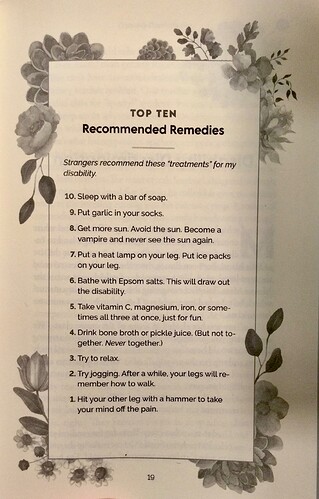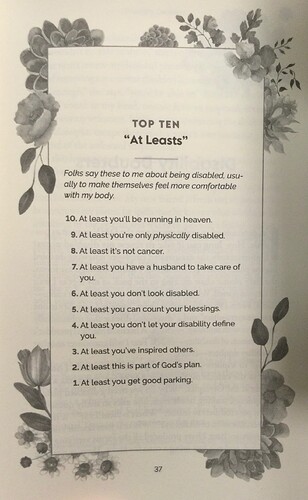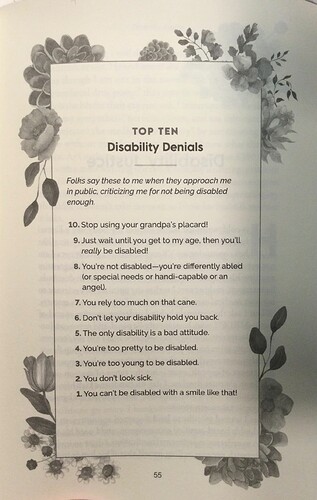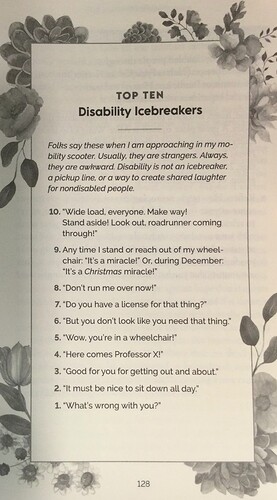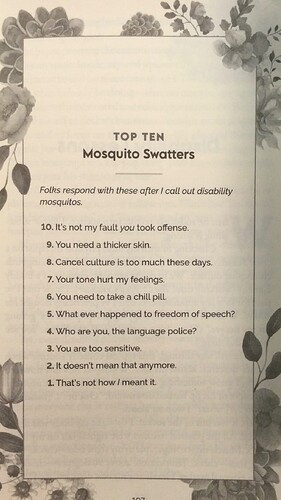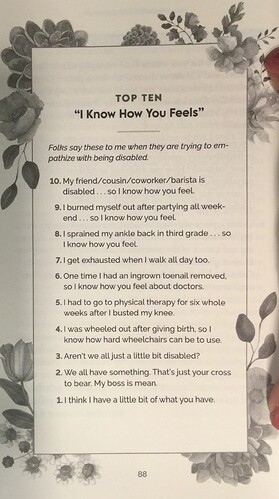Devan Stahl and Leonard Curry consider how the early Church viewed disability, how theology enriches bioethics, and provide helpful tips on combating ableism.
@CReyes-Ton and BL leadership,
Part 2 is just as valuable a Part 1! Thank you again for all the work that went into these articles, as well as daring to get into this topic and in this way. Please, continue to explore and expand (and push hard) in this and other areas of discrimination in the church and theology.
This cannot be emphasized enough:
We need to start allowing people with disabilities to take leadership roles in our congregations…When we allow people with disabilities to take on leadership roles, we may begin to understand their experiences as well as their strengths.
When we see with whom the members of any organization are willing to share power, we see who the members value as genuinely able, capable. Real leadership roles in organizations demonstrate trust of the members in the abilities, wisdom and expertise of the leaders. This is the single most effective way of demonstrating that any person is seen as an integral and valuable part of a community.
If churches believe that people with disabilities are a real part of the church body, churches will include them in leadership roles, and not merely those limited to roles associated with disabilities. Pastors, elders, deacons, deaconesses, missionaries, teachers, organizers, ministry leaders, etc. Every member with the abilities and knowledge to fill a roll should be considered for it. And only the person with disabilities should have a right to say whether they’re interested in the opportunity.
However, ableism, whether it’s deliberate or not, is the norm in churches.
Ableism is discrimination and social prejudice against disabled people. Ableism sets up able-bodiedness as preferable, valuable, and normal.
This pervades our theology as well as our practice, giving preference to certain individuals or groups: married couples with children over childless couples, married couples over singles, straight, celibate singles over not straight celibate singles. This hierarchy of worth is simply antithetical to the Gospel and the structure of the Kingdom of God.
The only way to understand any person with a disability (or any other member of a minority) is to let them speak for themselves AND hear them out. This is an excellent beginning place:
I insist on reading what people with disabilities are writing. It is important to me to have first-person accounts of the joys, pains, sorrows, and the spiritual and physical ecstasies experienced by persons living with disabilities…Instead of pretending to possess all knowledge, expertise, and mastery, feel your way with head and heart, ask questions, and read.
Absolutely do this:
[W]hen you are ready to make material, concrete, and structural changes, hire a person with a disability who does consulting. People with disabilities need good work. Pay them for their labor and expertise.
This is how we integrate people as experts in their fields. We hire and PAY them, because we value their expertise and their work, because we expect that their time is of value, because they ARE normal and have a life.
My oldest is reading a book called My Body is not a Prayer Request: Disability Justice in the Church by Amy Kenny. I haven’t read it (yet) but wanted to share some screen shots of lists the author includes between the chapters.
Note: Irony Alert. Tune your ear and good sense to the likely use of irony and sarcasm in these lists:
